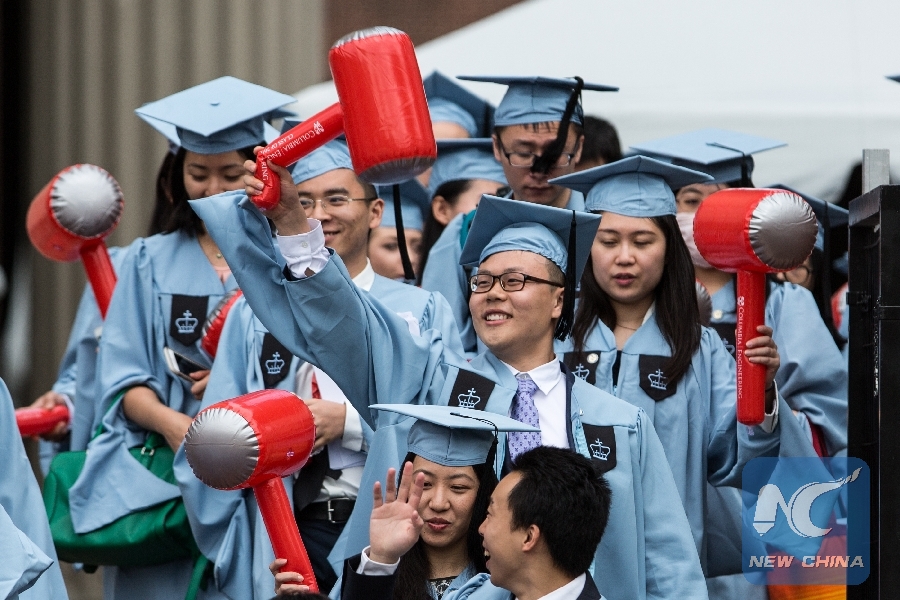
File Photo: Members of the graduating class of 2016 attend the commencement ceremony of the 262nd Academic Year of Columbia University in New York, the United States on May 18, 2016. (Xinhua/Li Muzi)
NEW YORK, March 28 (Xinhua) -- Education plays an irreplaceable role in strengthening U.S.-China ties and both countries should keep an open mind towards education exchange, said a U.S. expert and former diplomat.
"Education has been the cornerstone of the U.S.-China relationship, deepening and informing communication and interaction between the two countries," Julia Chang Bloch, founder of U.S.-China Education Trust (USCET), a Washington D.C.-based nonprofit organization, told Xinhua in a recent interview.
As China and the United States are facing some difficulties in bilateral ties, it is "more important than ever to draw on the power of education exchange to build mutual trust, avoid conflict, and ensure peace and prosperity in the 21st century," said 77-year-old Bloch, U.S. ambassador to Nepal from 1989-1993 and also the first Asian American to hold such a high diplomatic position in U.S. history.
People-to-people exchanges transmit empathy, which helps iron out mistrust and misunderstanding caused by differences stemming from two different social systems and cultures, she noted.
She also called on students and educators who have had the opportunity of studying, living and working in both countries to step up efforts to safeguard U.S.-China relations against misunderstanding, misperception and miscalculation.
Bloch learned the importance of education exchange through her father F.Y. Chang, who was among the first group of Chinese students coming to the United States. After graduating from Harvard Law School, Mr. Chang went back to China and taught international law at Peking University for a period of time.
It was also on the campus of the university Bloch got the idea of establishing the USCET some two decades ago, while strolling along the paths her father once stepped on. Today, the organization works with over 15 academic partners in the United States and more than 70 top Chinese universities.
What deeply concerns Bloch now is the fact that an increasing number of Chinese students, especially those who want to study technology-related majors in U.S. universities and colleges, got their student visa applications denied in the past year.
"The academic community is mounting a major campaign against what they see as an unjustified attack against Chinese students," said Bloch. "Such broad attacks are not only unfair to the Chinese students, but handicapped one of America's strongest competitive advantages, our open education system."
The former ambassador also hoped that the United States could send more students to study in China, as "there has to be more balance in the numbers of students from one country to another."
According to latest statistics, over 360,000 students from China are studying in the United States while the number of U.S. students in China stands at just around 12,000.
When the percentage of Americans who can speak Chinese is the same as that of Chinese speaking English, "that would be the day" for the two countries to get closer and achieve better mutual understanding, Bloch added.

